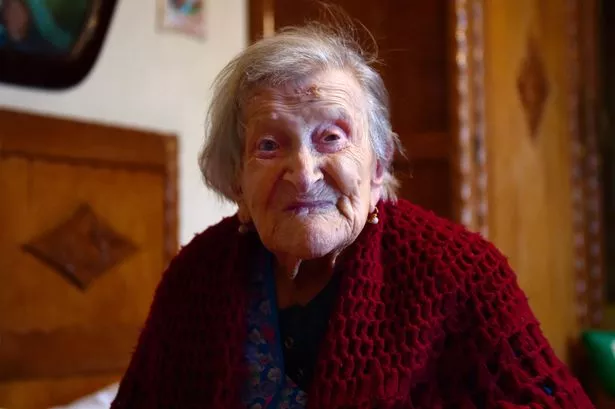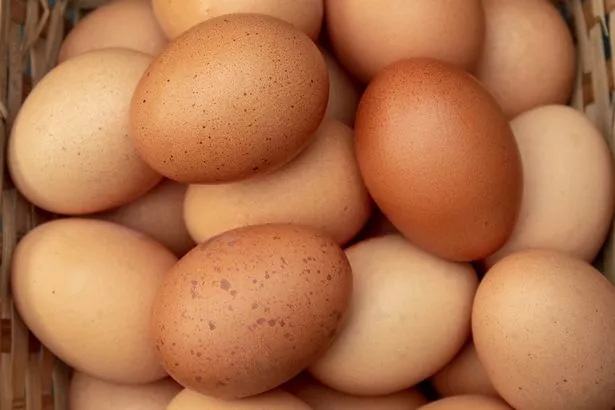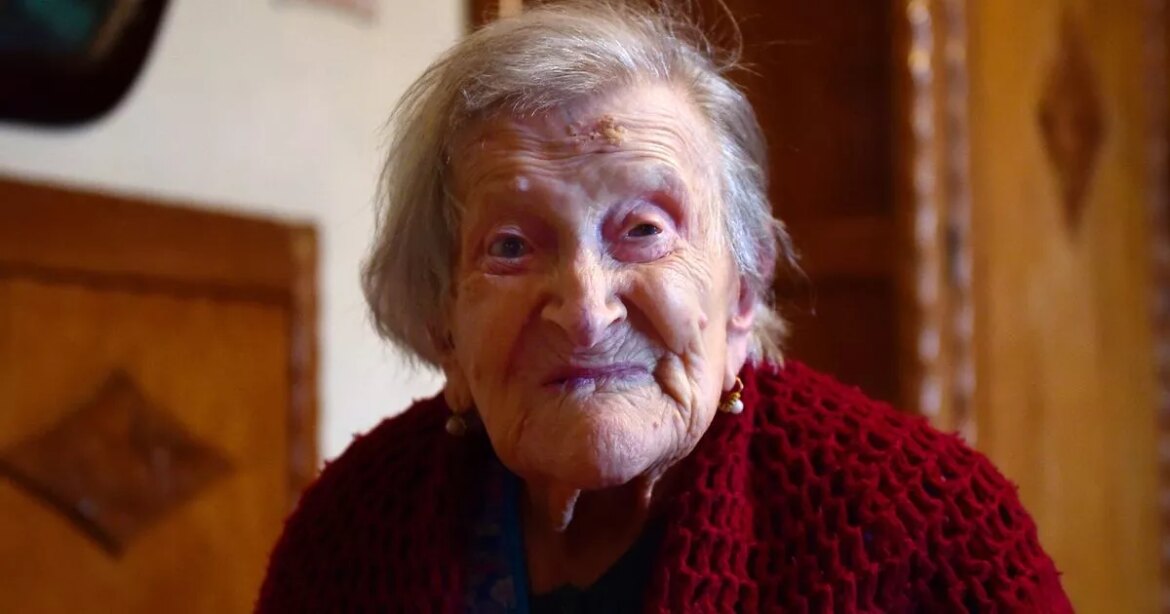Emma Morano maintained a peculiar but constant diet throughout her life which she attributed to her longevity. It encompassed one surprising staple that’s been dubbed one of the ‘most nutritious foods on the planet’
16:25, 11 Nov 2024Updated 15:05, 12 Nov 2024
 Emma Morano, born in Italy in 1899, is remembered for reaching the age of 117(Image: AFP/Getty Images)
Emma Morano, born in Italy in 1899, is remembered for reaching the age of 117(Image: AFP/Getty Images)
Emma Morano, born in Italy in 1899, is remembered for reaching the age of 117 and for the simplicity of her habits that, according to her, contributed to her longevity. She attributed her long life to two factors: her decision to remain single from a young age and, surprisingly, a diet based on daily egg consumption.
This Italian was the last living person born in the 19th century and became a symbol of resilience and longevity thanks to the discipline with which she faced life’s challenges. An infobae report suggests that Emma maintained a peculiar and constant diet: she consumed three eggs a day, two of them raw and one cooked as an omelette.
This dietary habit began in her 20s after being diagnosed with anaemia shortly after World War I and remained a constant in her life for nearly a century. According to her own words in an interview with AFP, the daily intake of eggs provided her with the energy and nutrients necessary to cope with the physical demands of her work and maintain stable health.
READ MORE: Red flag symptoms of Selena Gomez’s ‘bacterial overgrowth’ health battle explainedREAD MORE: Misery actress Kathy Bates 7st weight loss after eating too many ‘burgers and pizza’
The long-lived Italian also complemented her peculiar diet with a special touch of grappa—an Italian liquor—prepared with herbs like sage and rue, along with some grapes. She made this herself and took it by spoonfuls, maintaining a tradition that reminded her of the local flavours of her homeland.
As years passed, and towards the end of her life, Emma reduced her intake to two eggs a day, a simplified version that still allowed her to maintain a minimal energy level without relying on medications or complex diets. Despite an active working life and the natural wear of years, Emma surprised her doctor, Dr. Carlo Bava, who attended to her for nearly three decades.
According to Bava’s explanation to AFP, Emma rarely consumed fruits or vegetables, foods usually recommended for a healthy life. However, the doctor explained that longevity might also have been influenced by genetic factors. Her mother lived to 91 years old, and several of her sisters reached or surpassed 100 years old.
Find out about the symptoms you need to watch out for and get health advice with our free health newsletter from the Mirror
One of the most notable aspects of Emma’s life was her firm decision to live without a partner for most of her existence. Her only marriage at age 20 was neither happy nor voluntary. Forced into the relationship after losing the man she loved during the First World War, Emma said she endured an abusive relationship until she finally separated in 1938.
It was after the death of her only child that Emma decided she did not want to submit to anyone else’s ‘domination’ and chose to live alone without seeking another relationship. Emma firmly believed that this decision positively influenced her health and longevity by avoiding the emotional stress often involved in a partnership.
Emma lived through a historical context full of changes and challenges that deeply marked her character. During her 117 years, she witnessed two world wars and more than 90 Italian governments, as well as numerous advances in technology and medicine.
 As years passed, and towards the end of her life, Emma reduced her intake to two eggs a day(Image: AFP/Getty Images)
As years passed, and towards the end of her life, Emma reduced her intake to two eggs a day(Image: AFP/Getty Images)
From her position as a factory worker, Emma observed the ebb and flow of social and political changes in Italy while maintaining a positive attitude and great adaptability. According to those who knew her, one of her secrets was the ability not to be swayed by complications, remaining constant and not deviating from her life choices.
What did Emma’s diet consist of?
Emma disclosed that her daily diet initially included three eggs, although she eventually cut this down to two. Over the years, she also avoided vegetables while relying on an Italian liquor she prepared everyday.
While she would consume just a couple of tablespoons, Emma claimed the liquor gave her enough energy to go about life without depending on medicine.
Why are eggs good for us?
Eggs are among the ‘most nutritious foods on the planet’, according to Healthline. Not only are they packed with nutrients like vitamin D, B12 and phosphorous, but they also boast potential benefits for cholesterol.
READ MORE: ITV presenter unveils ‘poisoning’ incident that put his daughter in hospitalREAD MORE: Little Mix Perrie Edwards thought she had a ‘heart attack’ before realisation
This is largely because they help to improve levels of high-density lipoprotein – or ‘good cholesterol’ – that’s associated with a lower risk of serious health problems like heart disease and strokes.
Aside from this, Helen Bell, a nutritionist at the UK Care Guide, previously told The Mirror, that eating eggs may be beneficial for weight loss too. She said: “In my experience, consuming eggs as a snack can actually be quite beneficial for weight loss. Eggs are high in protein, which helps to increase satiety and keep you feeling fuller for longer.
“This can reduce the overall calorie intake throughout the day. But, it’s important to watch portion sizes and prepare them in a healthy way, like boiling or poaching, to avoid adding unnecessary fats.”
 Eggs are among the ‘most nutritious foods on the planet’, according to Healthline(Image: Getty Images)
Eggs are among the ‘most nutritious foods on the planet’, according to Healthline(Image: Getty Images)
However, the NHS asserts that a balanced diet is crucial for maintaining good health. Typically, this should include at least five portions of fruit and vegetables per day, fibre, dairy, protein and plenty of fluids.
The health service adds: “If you’re having foods and drinks that are high in fat, salt and sugar, have these less often and in small amounts. Try to choose a variety of different foods from the five main food groups to get a wide range of nutrients.
“Most people in the UK eat and drink too many calories, too much saturated fat, sugar and salt, and not enough fruit, vegetables, oily fish or fibre.” For information, visit the NHS’ website.

